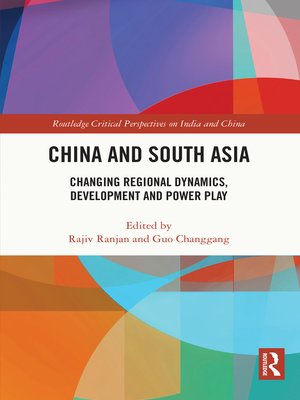China and South Asia
ebook ∣ Changing Regional Dynamics, Development and Power Play · Routledge Critical Perspectives on India and China
By Rajiv Ranjan

Sign up to save your library
With an OverDrive account, you can save your favorite libraries for at-a-glance information about availability. Find out more about OverDrive accounts.
Find this title in Libby, the library reading app by OverDrive.



Search for a digital library with this title
Title found at these libraries:
| Library Name | Distance |
|---|---|
| Loading... |
This book looks at the changing dynamics and regional power play between China and South Asia. It explores crucial issues such as China–Pakistan Economic Corridor and the changing nature of China–India relations; China's trident approach in South Asia and its rising influence in the region; the responses of small states to rising China; China's twenty-first-century Belt and Road Initiative; China and India; China's rise and the USA's security policy vis-à-vis India; the Shanghai Cooperation Organization and regional security; and Russia's 'Pivot to the East' and its impact on the Asia-Pacific region. The volume brings together the views of scholars from China, South Asia and beyond on different aspects of China and South Asia engagement, including regional politics, connectivity, infrastructure and development projects, power politics, economy, ideology and culture. The chapters offer insights into trends and challenges within China's economic and security environment as impacted by globalization, regional interests and the demands of cooperation. They present critical, comprehensive and expert analyses of China's engagement with South Asia by covering historical, sociological, political, cultural, economic and strategic factors while including perspectives from individual countries.
This volume will be useful to scholars and researchers of Chinese studies, politics and international relations, South Asian studies, foreign policy, diplomacy, security and strategic studies and political studies, as well as to those in media, policymakers, bureaucrats, diplomats and think tanks.







